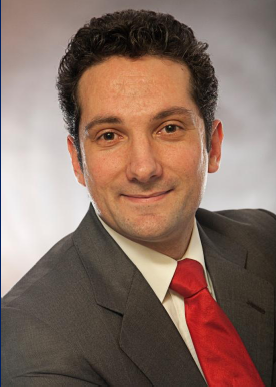
KIT: “We empower entrepreunerial spirit”
Interview by: Luca Marie Wodtke
Boston has the MIT, Baden-Württemberg has the KIT. The technology university in the city of Karlsruhe is known nationwide for its expertise and excellency in teaching. KIT is also shaping the start-up scene in Baden-Württemberg. Oliver Schmidt, of KIT’s International Services Unit, shares his views on the cooperation projects of KIT worldwide, especially in China and India.
How is KIT positioned internationally?
We have a total of around 1200 international cooperation projects worldwide. A cooperation project can be a strategic partnership or a university partnership that in turn is divided into smaller cooperation projects, on the faculty level, as an individual research subject or the exchange of professors. Most partnerships take place in Europe.
France is clearly the priority country here. This has to do on the one hand with the geographical proximity which facilitates exchange and collaboration a lot, but also with the scientific excellence of our partner institutions.
Outside Europe, Asia is of high significance to KIT, especially China. Here, we work in partnership in all areas of expertise.
A third priority country for KIT is Chile. We have been intensifying this cooperation for about 3 years and are building up a lot there, especially in the area of a sustainable economy and renewable energies.
Our main base is in Karlsruhe, yet KIT also has several sites somewhere else in Germany. Our only location outside the country is in Suzhou, China: The KIT China Branch. However, that was the result of a development over several decades of intensive collaboration with partners from industry and academia in China.
“The economy has found better strategies than science to deal with India”
How do you see the cooperation with India?
I see India as a rather difficult country in terms of cooperation. The economy has found better strategies to deal with India, which is still often unstable, but unfortunately, it is still difficult for science. Quite often in India, there emerge institutes, educational institutions, and universities that want to get involved internationally. It is difficult for us to assess how serious they are and what their level of performance is.
Of course, there are many large successful universities in India, such as the IITs (Indian Institute for Technologies), with which KIT also cooperates on a large scale. Basically, Indian scientists are also very sought-after because many are very determined and hungry for knowledge.
“The enthusiasm for India is great.”
It is not easy to ensure smooth cooperation, because what KIT wants and what India wants often do not go hand in hand. We want to achieve added value. The mentalities are still too far apart. While the Chinese, for example, work very goal-oriented, which is something Germans are better at dealing with, the Indians work less goal-oriented at the moment.
The cooperation we already have, have been going on for many years and work very well. India also offers great potential. KIT only has to find the right partners.
Where does the close cooperation with India come from?
India is a very special country for Baden-Württemberg. Especially the Maharashtra region, where Karlsruhe’s twin city Pune is located.
India became very popular a few years ago because, alongside China, it is regarded as an emerging Asian power. China then developed faster, but still, the enthusiasm for India is great.
Who from India works at KIT?
Without knowing the exact figures, there are between 120 and 150 Indian employees at the level of doctoral students and in ascending order. We also ask ourselves where this high number of Indian colleagues comes from. We assume a lot is done by word-of-mouth and of course, when our professors notice that Indian specialists work well, they will always hire them again. But we are not actively recruiting.
What does KIT offer its international students?
At the beginning of each semester, we have the so-called O-phase. Although this is mostly aimed more at domestic students, there are also supervisors who are exclusively responsible for international students and show the students, for example, where to find the food they are used to from home.
We also have the Buddy Program where new students can get together with experienced students and get to know everyday life.
“A protected space where students can try their hand in the industry”
Who comes to KIT?
The requirements are the same for everyone who wants to complete a bachelor’s degree. For this, you need a high school diploma or a comparable degree and also good German language skills. We give more and more importance to the latter. Proof of German language proficiency must be provided by the date of enrolment at the latest. We offer our Bachelor programs almost exclusively in German. In the case of a Master’s degree, it depends more on the subject area. There is more choice here for English-speaking students, but it is important what you have done in your Bachelor’s degree – not only the grades but also experience.
How do start-ups get to KIT?
Our start-ups come from KIT. As a university, we always try to promote the entrepreneurial spirit of our students and scientist as well. There are different places where they are encouraged to deal with reasons.
We have an Institute for Entrepreneurship, Innovation and Technology Management. This is open to students from all disciplines – they can take courses here, can basically get involved with starting a business, and can go step by step.
We also have a Center for Innovation and Entrepreneurship on campus belonging to the central Innovation Management Office. The Cube is an open space for founders – students and employees. Here are young entrepreneurs who are concerned with the idea of starting a business or have already done so.
Peer-to-peer consulting plays an important role here – founders help each other no matter how far they have already gone. We also offer official consulting appointments here in partnership with the Innovation Management Office and the Institute for Entrepreneurship.
Another aspect is that our students come into contact with the industry right from the start. We have a very research-oriented teaching approach, which means that we bring our students into contact with research right from the first semester of their bachelor studies. Research projects come directly from industry. The KIT offers a protected space where students can try their hand in the industry without having to enter the market directly. This is something that is of great benefit to the students so that they can really set up their own company.
At KIT there is the largest and oldest student group in the field of entrepreneurship: the Pioneer Garage. The Pioneer Garage is a student group of young founders or students who are thinking about starting their own business and who now have their own incubator. They are very internationally oriented. They also travel to India or China to get to know the industry abroad.
“We have the next generation.”
Innovation Day and Cyberforum – where is KIT involved?
The yearly Innovation Day is actually KIT’s big Entrepreneur/Innovation event. It takes place this year on July 10th and offers a day-long insight into the innovation activities of KIT especially into the start-up entrepreneurship scene through various workshops, externally invited guests and a company highlight.
Cyberforum is an association of companies in the technology sector. This is very relevant for the KIT because many of the companies in the Cyberforum come from the KIT and we also cooperate with many companies. The KIT is interesting for other companies because we have the next generation of staff.
More information on the Center for Innovation and Entrepreneurship: http://cie-kit.de/


